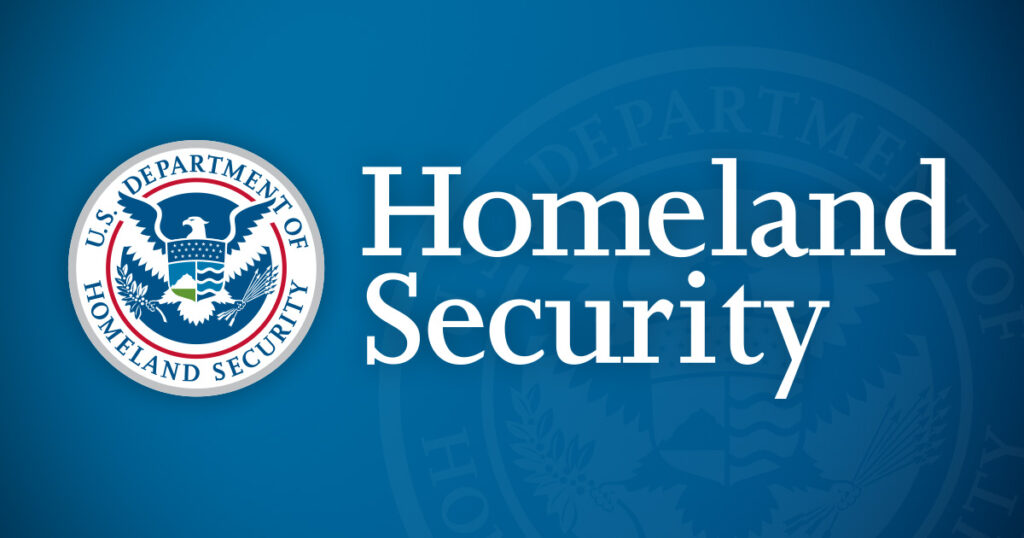
The Department of Homeland Security (DHS) announced that it is outlining an enhanced strategy to combat illicit trade and level the playing field for the American textile industry, which accounts for over 500,000 U.S. jobs and is crucial for national security. Two of DHS’s agencies, U.S. Customs and Border Protection (CBP) and Homeland Security Investigations (HSI) will further enhance their work together to protect the integrity of U.S. markets, hold perpetrators accountable for customs violations and safeguard the American textile industry. The plan will serve as the blueprint for future strengthened enforcement efforts through intensified targeting of small package shipments; joint trade special operations; increased customs audits and foreign verifications; and the expansion of the Uyghur Forced Labor Prevention Act (UFLPA) Entity List.
The new enforcement plan focuses on the following actions:
- Cracking down on small package shipments to prohibit illicit goods from U.S. markets by improving the screening of packages claiming the Section 321 de minimis exemption for textile, UFLPA and other violations, including expanded targeting, laboratory and isotopic testing and focused enforcement operations.
- Conducting joint CBP-HSI trade special operations to ensure cargo compliance. This includes physical inspections; country-of-origin, isotopic and composition testing; and in-depth reviews of documentation. CBP will issue civil penalties for violations of U.S. laws and coordinate with HSI to develop and conduct criminal investigations when warranted.
- Better risk assessment by expanding customs audits and increasing foreign verifications. DHS personnel will conduct comprehensive audits and textile production verification team visits to high-risk foreign facilities to ensure that textiles qualify under the U.S.-Mexico-Canada Agreement (USMCA) or the Central America-Dominican Republic Free Trade Agreement (CAFTA-DR). CBP recently visited 31 facilities in Mexico—the first such visits under USMCA—as well as 18 facilities in Honduras and is on track to double the number of total foreign verification visits compared to last year.
- Building stakeholder awareness by engaging in an education campaign to ensure that importers and suppliers in the CAFTA-DR and USMCA region understand compliance requirements and are aware of CBP’s enforcement efforts.
- Leveraging U.S. and Central American industry partnerships to improve facilitation for legitimate trade.
- Expanding the UFLPA Entity List to identify malign suppliers for the trade community through a review of additional entities in the high-priority textile sector for inclusion in the UFLPA Entity List.
“We are dedicated to ensuring a fair and level playing field for American businesses,” says U.S. Secretary Alejandro N. Mayorkas. “The textile industry, like other industries, suffers when competitors use forced labor, violate customs laws, and engage in other illegal practices to undercut U.S. businesses and drive prices unfairly low. Through strengthened enforcement measures, enhanced inspection and testing, and increased information sharing, this administration is protecting thousands of American workers and the U.S. textile industry.”
DHS has already begun implementing the plan, building on ongoing efforts to ensure compliance. Thus far in the Biden-Harris Administration, DHS has accomplished the following:
- Launched 15 Trade Special Operations that focus on physical inspection of small shipments and cargo as well as post-release reviews to determine eligibility for preferential treatment under free trade agreements.
- Examined textile imports, including 300 physical inspections, and reviewed documentation for additional shipments.
- Initiated trade audits on more than $10.5 billion in textile imports.
- Completed Textile Production Verification Team visits — as previously mentioned — to 44 factories and five raw material providers across Mexico and Honduras to ensure compliance of $800 million in textile imports claiming preferential duty treatment.
- Included 10 entities from the textile sector in the UFLPA Entity List, contributing to the stoppage of apparel, footwear and textile shipments.
In January, Secretary Mayorkas met with members of the National Council of Textile Organizations (NCTO) to discuss current challenges in the textile industry. NCTO explained the significant harm that the textile industry is suffering at the hands of unscrupulous individuals and entities who create an unfair market by circumventing the operation of our nation’s free trade agreements, violating the UFLPA, and exploiting the de minimis shipment exception that is established in law. Following the meeting, the Secretary directed the Department to provide him with a new comprehensive enforcement action plan to increase and expedite their work to combat illegal customs practices that harm the American textile industry.
Textile enforcement has been a longstanding priority trade issue for DHS. CBP and HSI will continually learn from enforcement results and consider additional actions as necessary. In fiscal year 2023, CBP made 5,016 textile-related seizures with a domestic value exceeding $129 million, including smuggled apparel already tagged for retail sale and counterfeit clothing. The agency also protected and recovered $266.6 million on misclassified, undervalued, or unsubstantiated free trade agreement claims. CBP issued 1,859 penalties and liquidated damages against violators and detained and reviewed over 780 shipments related to forced labor with an estimated value of over $40 million, denying the entry of more than half of those shipments.
 TEXTILES.ORG
TEXTILES.ORG


